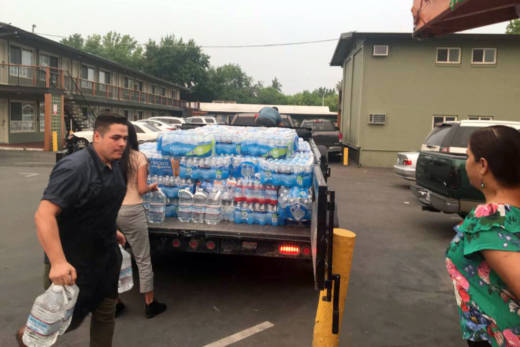Elsa Ceja’s parents came from Mexico and opened La Cabaña restaurant in the city of Redding 22 years ago.
When the fires broke out last week, Elsa and her whole family were in Mexico on vacation. They landed in Sacramento last Saturday, July 28, when the blaze was at its height. Flames were consuming parts of the city.
“Everyone was scared,” Elsa says. “And I’m like no, we gotta go back. We gotta see what’s going on. We have to go home and see and help. We can’t just take off. We have to be there for our community. They’ve been there for us so many years. It’s time for us to be there.”
Elsa and her family rushed home. They posted on Facebook that they would give free food to first responders and firefighters, and 20 percent discounts to evacuees. They started distributing breakfast burritos at a nearby evacuation center.
For more help, Elsa called her sister, Alma Fragoso, in Sacramento, about 2½ hours away. Alma contacted her local priest to get donations — water, clothes, hygiene products and toys. They piled it all into a truck and drove it up to Redding.

